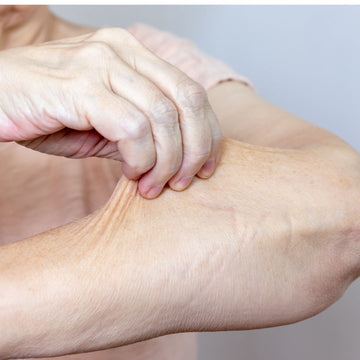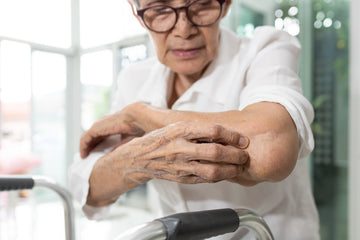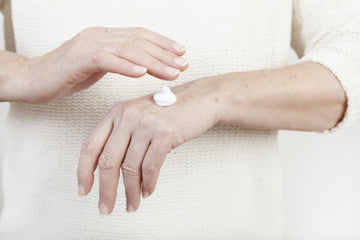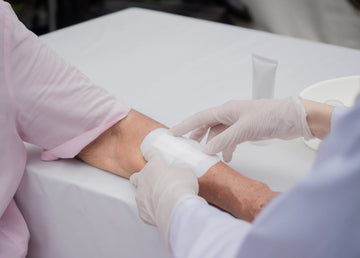
With aging, skin starts feeling dry and irritated especially in the 60s & 70s. This happens for many reasons, including the fact that skin is thinner and loses water more easily. Medications and medical conditions can also add to skin problems. However, there is good news. The right skincare can improve how skin feels, and looks and can prevent bedsores and skin infection-related complications.
Here’re some skincare tips for the elderly.
Bathing tips:
- Wash with gentle, moisturizing bar soap, cleanser, or body wash.
- Use warm (not hot) water. Hot water strips skin of its natural oils, which can increase skin dryness. A five-minute shower or bath in warm water can add moisture to the skin.
- Use a soft cloth to wash their skin to avoid irritation the skin and also a barrier gel cream for bedsores
- Keep the bath or shower short.
- Pat water gently on your skin after bathing.

Moisturize the skin
Apply a creamy, fragrance-free moisturizer formulated for dry skin within 3 to 5 minutes of bathing
Apply moisturizer several times a day. Moisturizer plays a key role in healing dry skin.
Gently massage the moisturizer into their skin.
In case the patient is male and needs shaving, shave at the end of the shower or bath.
Use a humidifier when the air feels dry.
Heating and air conditioning can strip humidity from the air. Dry air can make skin feel dry and itchy. Dry skin needs moisture. You can boost the humidity level in your home with a humidifier.
Go fragrance-free.
Fragrances can irritate the skin. To help heal dry, itchy skin and prevent it from coming back, stop using perfumes, colognes, and skincare products that contain fragrance.
Protect skin from cold:
Cold air can worsen dry skin. Wearing gloves in the winter that keep hands warm can help.
Loose-fitting cotton clothes:
Tight clothes rub against the skin, which can worsen dry skin. Avoid skin irritation by making them wear loose-fitting cotton clothing
In the case of bedridden elderly patients, here are a few skincare tips to prevent the development of bedsores:
- Change their position at least every 2 hours.
- Keep their skin clean and dry.
- Keep their skin well moisturized.
- Make sure the bed sheets are smooth and not wrinkled.
- Sheets should be cotton or silk-like fabric.
- Eating a well-balanced diet is important.
- Avoid dehydration.
- Inform the attached doctor of any redness or skin color changes if noticed.
Apply a barrier cream like Soreze to protect the skin against friction, moisture, and irritation.



